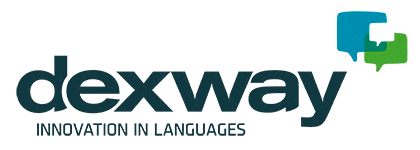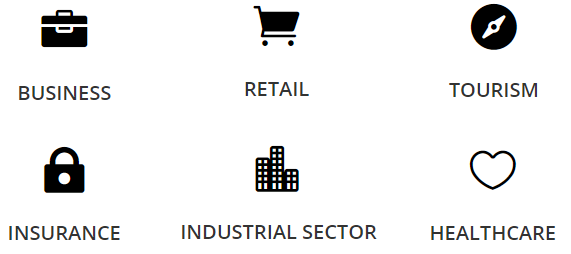Dexway offers your center a wide catalog of content for face-to-face, semi-face-to-face or online training. The language modules for specific purposes cover vocabulary and real-life situations that occur in professional contexts.
We have created new, specific content for each professional sector. Students will improve both their language proficiency and their communication skills in order to use English confidently in all situations and in any context, including professionally. With the English courses by professional sectors, your students expand their specific vocabulary and are able to deal with any enquiry, conversation or situation.
Training areas of English courses by sector
New language modules for specific purposes:
English: Business Meetings
In this 30-hour course, students are introduced to the typical language used when conducting business in English, particularly when it comes to meetings.
The course begins with a review of typical business language, describing industries, using the proper register, and talking about companies. The topics of organizing meetings, writing an agenda, annual general meetings and writing a cover letter are studied. There is also an introduction to written communication for business and internal communication with an emphasis on reports, memos and emails, including detailed examples of each type and extensive practice on the styles and requirements of each.
The course also covers how to present the structure of a company, describe its physical appearance or explain the function of different departments by studying various examples of roles and professions within the business world.
Corporate English
This 60-hour course addresses the skills necessary to correctly and fluently solve company-specific situations in English, developing oral and written skills through a series of lessons focused on typical business situations.
The course also has a specific section on telephone communication: leaving and receiving voice messages, scheduling events, and asking for and giving information. There is also a section focused on common mistakes and false friends that will help students to identify their weak points and improve their accuracy and avoid making typical mistakes.
Students will review common ways of greeting by seeing and hearing a variety of examples of business conversations and correspondence. This topic is closely linked to business travel, another area covered in this course. Students will see common expressions to use when traveling, as well as ways to deal with other situations that may arise, such as socializing and introducing people.
English: Business Writing
This 30-hour course presents the most common forms of written communication applied to business. It begins by addressing emails, the difference between formal and informal writing registers, as well as the more traditional letter writing format. The course also covers the written aspects of organizing a meeting, the correct way to set and organize an agenda, and the typical vocabulary used in these situations.
Invoices are another type of writing that is covered in the course. Students will see the typical format for these documents and see examples. The course contains sample letters requesting payments, as well as an introduction to import and export procedures.
Inquiries and orders also form part of commercial writing and there are examples of situations related to the request for a catalog, the request and the provision of information, as well as the handling of complaints.
English: Customer Service
This 30-hour course covers the essential language needed in the area of customer service. Students are introduced to the appropriate language, register, and expressions for use in the business world in both spoken and written interactions.
Students will see examples of different types of emails and letters. As a general background to the lessons, there is a review of the language needed to talk about the structure and activity of a company, including the relevant grammar to talk about specific projects. The course also reviews the typical language and structures generally used for inquiries, requests, and complaints.
A section is dedicated to telephone communication and common mistakes such as false friends. In the phone calls section, students see examples of how to take notes, take and leave messages, as well as ask for and give information.
English: Presentations
English: Presentations (30h) is an introduction to the vocabulary and expressions that are most frequently used when giving presentations. After studying the different types of presentations and the most common tools used to carry them out, the course addresses the specific language used in each stage of the presentation: introductions and openings, main body and conclusion. An emphasis is placed on the structure of the presentations: signposting phrases that indicate the progress of a presentation, how to refer to visual aids such as tables and graphs, as well as the essential expressions to describe trends.
The course also looks at virtual presentations and the specific vocabulary and useful expressions needed to carry out an online presentation. Language related to dealing with questions, interruptions, and agreeing or disagreeing is also covered through listening and writing exercises that provide the student with authentic examples of different ways of expressing themselves in both formal and informal situations.
Students are also shown different examples of the language used when socializing in a presentation or conference, with examples of the typical questions asked in these situations.
Our purpose-built language modules for specific purposes train students through effective learning, focused on successfully overcoming day-to-day professional situations. In addition to English, Dexway offers modules for specific purposes in French, German or Spanish.
If you want to receive more information about these courses, please contact us.


